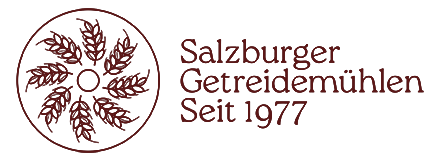Everyone loves the smell of freshly baked bread. So tempting that you want to cut a slice right away. But where does …

Our microbiome is an important component of our health and has a direct impact on our immunity, digestion and metabolic processes. In this article, you’ll learn more about how fiber affects health and why it’s so important to our microbiome. Learn which types of fiber are the healthiest and how to adjust your diet to achieve optimal balance.
Dietary fiber is an indigestible food component found in plant foods. Most dietary fiber consists of soluble fibers such as pectin and inulin, but also insoluble fibers such as cellulose and lignin. Dietary fiber cannot be digested by our bodies, but it serves as food for our intestinal bacteria.
Our intestinal flora is a microbiome consisting of millions of bacteria. These bacteria are important for our health as they produce digestive enzymes, absorb nutrients and strengthen our defenses. A healthy intestinal flora is therefore crucial for a healthy immune system.
So high fiber foods are good for our health because they strengthen our microbiome. About it h
Dietary fiber is an important part of a healthy diet and has many positive effects on health. They are not only beneficial for digestion, but also influence the microbiome – the totality of microorganisms in our body.
The microbiome is critical to our health as it performs many important functions in the body. For example, it regulates metabolism, strengthens the immune system and produces vitamins. A healthy intestinal flora is therefore essential for a healthy body.
Dietary fiber helps maintain or restore healthy intestinal flora. They ensure that the “good” bacteria can thrive in the intestine and prevent “harmful” bacteria from dominating. The ballast st
Dietary fiber is an indigestible carbohydrate found in plant foods. They cannot be digested by the human digestive organs and therefore pass through the intestines unchanged. Dietary fiber is both soluble and insoluble. Soluble fiber binds water and forms a gel that passes through the intestines. Insoluble dietary fiber, on the other hand, causes stool masses to become larger and softer, making them easier to excrete. However, most dietary fibers are soluble.
Dietary fiber has many health benefits. They aid in digestion by slowing the passage of the intestines, thus improving the absorption of nutrients. They also regulate blood glucose levels by delaying the absorption of glucose into the bloodstream. Dietary fiber may also reduce the risk of certain diseases, including cardiovascular disease, diabetes and certain cancers.
Soluble fiber is found mainly in legumes, peas, beans and fruits such as apples, plums and oranges. Insoluble fiber is abundant in whole grain products such as wheat bran, nuts and seeds, and vegetables such as broccoli, carrots and cauliflower.
Dietary fiber is an important component of a healthy diet. They can help regulate digestion and reduce the risk of cardiovascular disease and diabetes. Fiber is also important for gut health and the microbiome. Microbes in the gut ferment fiber and produce short-chain fatty acids (SCFAs), which can protect the intestinal tract, prevent inflammatory reactions, and inhibit the growth of cancer cells. SCFAs can also improve the absorption of nutrients by regulating pH levels in the gut. The link between fiber and the microbiome is bidirectional: fiber influences the composition of the microbiome, while the microbiome produces SCFAs, which in turn influence gut and healthy body health. So, high-fiber diets are an important addition to a healthy diet and can help improve the microbiome and overall health.
Our intestines are full of microorganisms called intestinal bacteria. These bacteria are important for our health because, among other things, they help break down nutrients and remove toxins from the body. high-fiber diet influences the type and number of bacteria in our intestinal system and thus our health.
Dietary fiber is indigestible plant fiber found in many foods. They can occur naturally in foods, as well as be added industrially. Dietary fiber does not enter the digestive tract, but passes through it undigested. In this process, dietary fiber is processed and utilized by the bacteria in our intestines.
A high-fiber diet has many benefits, but the recommended amount of fiber may vary depending on age and gender. The German Nutrition Society recommends an intake of 20 to 40 grams of dietary fiber per day.
Everyone loves the smell of freshly baked bread. So tempting that you want to cut a slice right away. But where does …
What is the difference? White flour:When the bran, i.e. the marginal layers, and the valuable germ are removed from the grain, we …
Hello and greetings! Also in the life of a mouse it is important to be always up to date and well informed. …
When it comes to eating breakfast, each of us has our own habits, certain preferences or maybe even skips the morning meal …
Address:
Gasteigweg 25,
5400 Hallein
Austria
Opening hours:
Monday to Thursday: 09 – 16:00
Friday: 09 – 12:00
Contact:
Phone: +43 6245 83282
E-Mail:
info@agrisan.at



